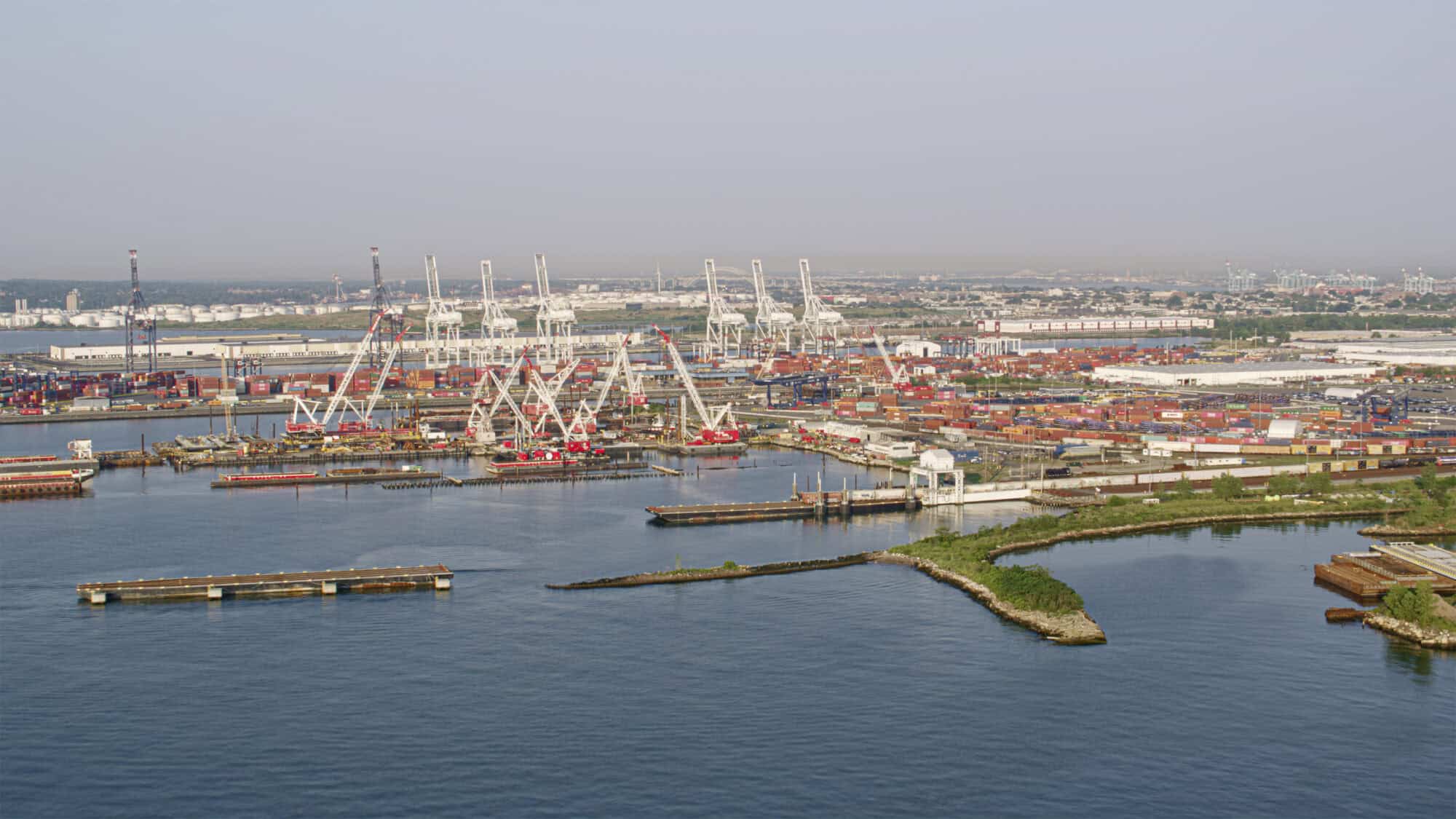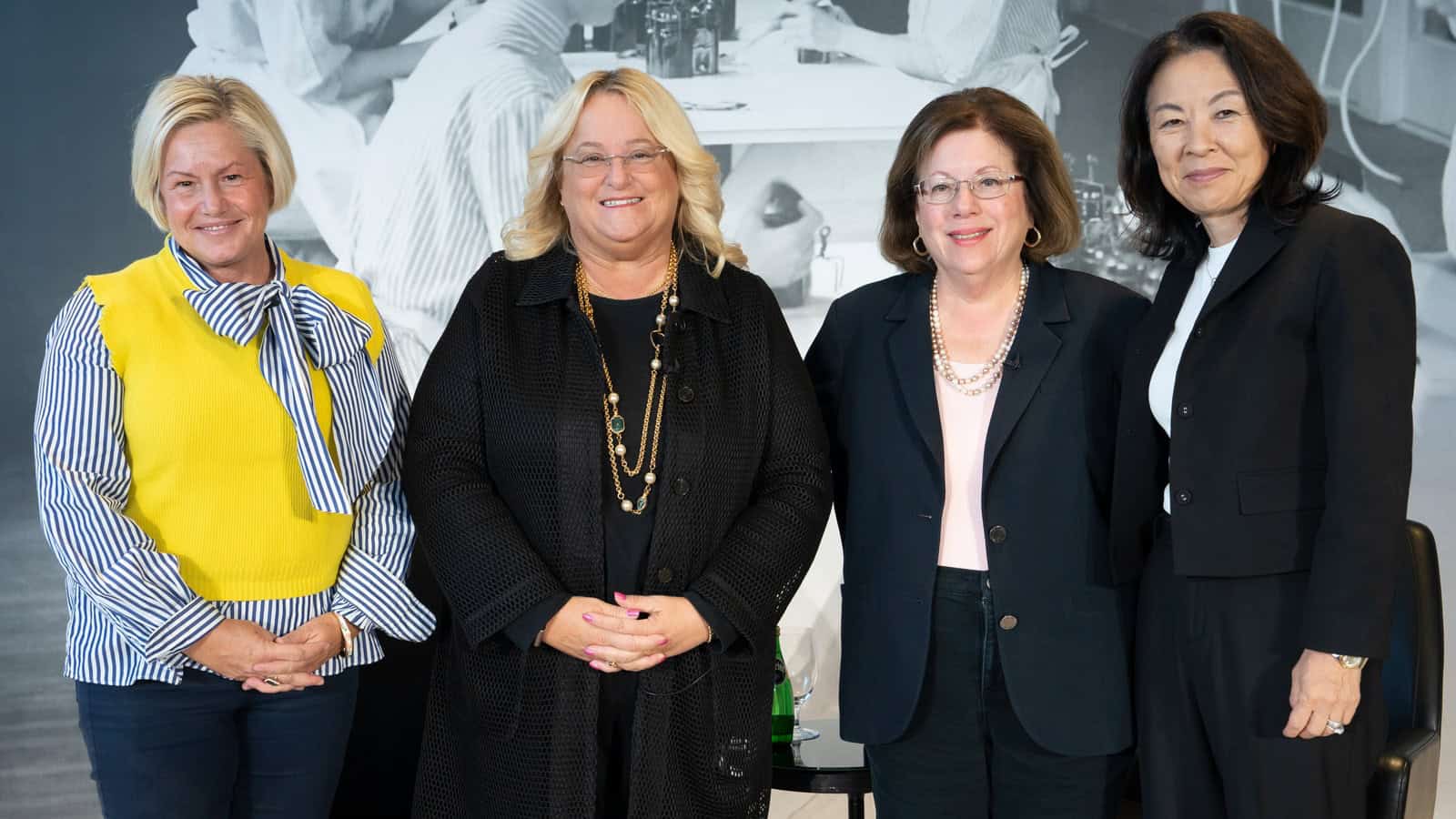Guide to the 119th Congress
On Nov. 5th, President-elect Donald Trump secured enough electoral college votes to become the 47th President of the United States. Republicans also flipped four Senate seats, meaning they will have a 53-47 majority entering the 119th Congress, and maintained control of the House though a small number of congressional races remain outstanding. For the first time since 2016, Republicans will have unified control of both Congress and the White House once President-elect Trump is sworn in on Jan. 20, 2025.
For now, as we enter the “lame duck” session of the 118th Congress, there remains a substantial laundry list of items for members to address before adjourning this session. Both the House and Senate return this week for the first time since the October break.
119th Congress Leadership Elections
Upon having control of both chambers next Congress, House and Senate Republicans returned to Washington this week to elect their respective leadership teams and establish their rules packages for the 119th Congress.
House Republican Leadership
- Speaker of the House – Mike Johnson (R-LA)
- House Majority Leader – Steve Scalise (R-LA)
- House Majority Whip – Tom Emmer (R-MN)
- House Republican Conference Chair – Lisa McClain (R-MI)
Rep. McClain is replacing Elise Stefanik (R-NY) who has been nominated as Ambassador to the United Nations by President-elect Trump.
Senate Republican Leadership
- Senate Majority Leader – John Thune (R-SD)
Sen. Thune will be taking over as GOP Leader from Mitch McConnell (R-KY), who is stepping down after a record 18 years in the position. - Senate Majority Whip – John Barrasso (R-WY)
- Conference Chair – Tom Cotton (R-AR)
- Policy Chair – Shelley Moore Capito (R-WV)
House Democratic Leadership
House Democrats have scheduled their leadership elections for Nov. 19th. It is unlikely there are major changes for the current leadership roster.
- House Minority Leader – Hakeem Jeffries (D-NY)
- House Minority Whip – Katherine Clark (D-MA)
- House Democratic Caucus Chairman – Pete Aguilar (D-CA)
Senate Democratic Leadership
Senate Democrats have not currently scheduled their leadership elections, but it is unlikely the top two positions change. There will be an opening for the third ranking position with Senator Debbie Stabenow (D-MI) retiring.
- Minority Leader – Chuck Schumer (D-NY)
- Minority Whip – Dick Durbin (D-IL)
- Chair of Policy and Communications Committee – To be determined
Debbie Stabenow (D-MI) is retiring from Congress. Amy Klobuchar (D-MN) and Cory Booker (D-NJ) have signaled their interest in this position.
Lame Duck Legislative Outlook
Congress has roughly five legislative session weeks before the Christmas break and several policy items to address in that time. Upon returning to Washington, policymakers face two must-pass pieces of legislation: the FY 2025 National Defense Authorization Act and a government funding package to prevent a shutdown when current funding runs out at midnight on Dec. 20th. On either NDAA or the government funding package, lawmakers may seek to include some form of disaster relief for victims of the recent hurricanes and an extension of the current Farm Bill.
In the Senate, it is likely that Democratic Majority Leader Chuck Schumer will move to advance as many of President Joe Biden nominees, including judicial appointments, as possible in the remaining weeks before Republicans take control of the confirmation process next year. Finally, the current debt limit suspension expires on Jan. 2, 2025. Congress will have to address the limit, or Treasury will be forced to take “extraordinary measures” to avoid a default in early 2025.
With these remaining weeks, the NAM continues to engage and encourage lawmakers to advance manufacturers’ priorities before Congress adjourns for the year.
How Manufacturers Find Workforces for New Sites

When a manufacturer is thinking about pouring millions or billions of dollars into a new facility, its leaders have a million or billion questions to go with it. Atlas Insight, the NAM’s partner for its Incentives Locator, helps manufacturers answer the biggest question—where?—with a combination of on-the-ground research, data gathering, relationship-building and more.
We talked to Atlas’ managing partners, Brian Corde and Kathy Mussio, who offered us a peek into this crucial process. Here’s what they had to say.
The “number-one factor”: While manufacturers typically prioritize access to raw materials and customers when choosing new sites, over the past 10 years the “number-one factor” for manufacturers has been talent, said Corde. How do you evaluate a workforce for jobs that don’t yet exist?
- First, Atlas looks for locations that already have companies in the same sector as its client, which is an indication of a local pool of talent.
- It then combs through a huge amount of data, including metrics like employment concentration (how likely are you to find a specific job function in that area?), local demographics (is the population expanding or contracting?) and much more.
Decoding the data: Let’s say an area had 500 people working in nonwoven textiles in 2018, Corde posited, but only 250 today; does that mean a new company in that sector won’t find the talent it needs?
- Not necessarily, he told us. While it could mean that workers with those skills have moved out of town, it may also indicate that an existing factory closed, forcing employees to find other lines of work. If a new textile facility opens, they might decide to return to their old industry.
- How does Atlas figure out if those workers might come back? One strategy is to have researchers scour the resumes posted on internet job boards—the more local job seekers who list textile experience, the more likely a new facility will find a skilled and eager workforce.
Drawing on local relationships: Just as important to the data crunching are Atlas’ ties to the local economies, Corde and Mussio said. Atlas has relationships with economic developers all over the country, giving it unparalleled insight into what’s happening in those communities.
- Ten years ago, Mussio said, these organizations might not have needed to find workers for new companies, but today they are in the workforce business—and some are even offering incentives to attract more residents to their communities.
Workforce training: Manufacturers also take a keen interest in local training programs when choosing sites and have many options for partnering with them, Corde said.
- In some cases, a company pays for colleges and tech schools to train their workers, in a simple cash deal. But other states, like Virginia, South Carolina and Georgia, will fund the training on a “preemployment basis” and allow prospective employers to observe the class before recruiting any of its students. That way, employers can observe soft skills before they even begin the hiring process.
Searching for sustainability: While their workforces might be top of mind, companies also prioritize sustainability when selecting their new sites. Some may look for natural gas, some nuclear, some solar—the configuration will be different for every manufacturer and every location, Corde and Mussio said.
- One large company was looking for a new location where it could build an enormous field of solar panels to support its operations. Atlas informed the company that some local governments might be reluctant to give them so much land, which could otherwise host another business.
- These types of considerations may not occur to a company, which is why Atlas stands ready to explain local concerns to manufacturers, as well as vice versa.
- In the end, the manufacturer did indeed get its solar field.
Take the plunge: If you are looking for expert guidance in your next site search, check out the NAM Incentives Locator. NAM members will receive a complimentary initial assessment call with an expert and a preferred rate on any services contracted—not to mention the benefit of the exhaustive and proprietary database that Atlas has created to assist with manufacturing projects.
Stay tuned . . . for part two, in which we discuss how Atlas helps companies get significant funding from local, state and federal incentives for their projects.
Ports Negotiations Break Down

Negotiations between the U.S. Maritime Alliance and the International Longshoremen’s Association have stalled again, “raising the possibility of renewed strikes at U.S. East and Gulf Coast ports in January” (gCaptain).
What’s going on: Talks between the dockworkers and their employers broke down this week over proposed language regarding the use of automation, according to the ILA.
- “This impasse follows a tentative agreement reached in early October, which ended a three-day strike across Atlantic and Gulf Coast ports” and extended the workers’ labor contract until Jan. 15, 2025.
- If the parties are unable to reach a long-term agreement by that date, the union could strike again.
Why it’s problematic: Even a brief work stoppage could have major economic consequences, according to widely cited NAM estimates.
- A strike at East and Gulf Coast ports would jeopardize $2.1 billion in trade every day and could reduce gross domestic product by up to $5 billion a day.
What must be done: “These ports are critical components of the manufacturing supply chain and move products on which Americans depend,” said NAM Director of Transportation, Infrastructure and Labor Policy Max Hyman. “Both sides should return to negotiations as soon as possible and reach a lasting resolution that prevents needless economic destruction.”
NLRB Overturns 40-Year Precedent

When employers tell workers that unionizing would harm employee–manager relationships, they might be violating federal law, the National Labor Relations Board ruled last week (Law360, subscription).
What’s going on: “Telling workers that a union would come between them and their bosses may violate the National Labor Relations Act because it’s an effective threat to end workers’ direct relationships with management, a majority comprising the board’s three Democrats said [last] Friday in a case involving Starbucks.”
- The groundbreaking decision overturns nearly four decades of precedent. In its 1985 Tri-Cast ruling, the NLRB allowed employers to tell employees that unionization would strain worker–manager relationships “so long as they didn’t explicitly or implicitly threaten employees” when doing so (JD Supra).
- The NLRB said such cases will now be decided on a case-by-case basis.
Looking ahead: The ruling will only apply to future cases, however, “allowing past communications under the Tri-Cast standard to stand without retroactive penalties” (JD Supra).
Producer Price Index Rises 0.2% in October
The Producer Price Index for final demand (also known as wholesale prices) increased 0.2% in October, after rising 0.1% in September. Over the past year, the final demand index rose 2.4% on an unadjusted basis, an increase from the 1.9% over-the-year increase in September. Prices for final demand excluding foods, energy and trade services inched up 0.3%, after rising 0.1% in September.
In October, prices for final demand services increased 0.3%, while prices for final demand goods rose just 0.1%. Although both food (-0.2%) and energy (-0.3%) prices declined, a 0.3% increase in prices of other goods more than offset those decreases. The largest underlying increase was a 0.5% rise in transportation and warehousing services prices, while prices for both trade services and other services increased slightly.
Prices within intermediate demand rose 0.5% in October, following two consecutive monthly declines. Processed goods for intermediate demand increased 0.5%, with prices for processed energy goods leading the increase. On the other hand, over the 12 months ending in October, prices for processed goods for intermediate demand fell 1.2%.
Meanwhile, prices for unprocessed goods for intermediate demand moved up 4.1% in October, after declining 1.8% in September. The increase was driven by a 9.9% rise in unprocessed energy materials. Meanwhile, unprocessed foodstuffs and feedstuffs prices edged up just 0.4%, and nonfood materials less energy prices increased 2.1%. Over the 12 months ending in October, prices for unprocessed goods for intermediate demand fell 2.9%.
October CPI Read Aligns with Expectations
Consumer prices rose 0.2% over the month and 2.6% over the year in October, in line with consensus expectations but higher than the 2.4% over-the-year increase in September. Core CPI, which excludes more volatile energy and food prices, stayed at a 3.3% over-the-year increase and remains higher than overall CPI.
Shelter increased 0.4% over the month and 4.9% over the year in October, accounting for more than 65% of the yearly increase of the all-items index. On the other hand, food price increases have slowed considerably, rising 0.2% over the month and 2.1% over the year in October. Prices for transportation services also remain high, rising 0.4% over the month and 8.2% over the year, with motor vehicle insurance increasing 14.0% over the year.
Energy costs, which were flat over the month, fell 4.9% over the year in October, helping to restrain the headline inflation rate. This decline is due partly to energy prices being somewhat elevated in October 2023. While energy commodity prices are down over the year, electricity prices are up 4.5%.
Although the over-the-year headline rate ticked up from the previous month, markets are still anticipating a 25-basis-point rate cut at the Federal Open Market Committee’s next meeting in December. However, slowing progress on inflation might upend the Federal Reserve’s previous easing plans for 2025, pointing to the possibility of the FOMC’s interest rate target being cut at a slower pace.
Inflation Ticks Up

Inflation rose again last month (The Wall Street Journal, subscription).
What’s going on: The consumer price index increased 0.2% in October, the fourth consecutive increase (Bureau of Labor Statistics).
- “[P]rices were up 2.6% from a year earlier, in line with economists’ expectations. Core inflation, at 3.3%, also matched forecasts,” according to the Journal.
The details: Shelter prices rose 0.4% in October, accounting for more than half the increases overall (BLS).
- Food prices inched up 0.2%, while energy prices were unchanged after having declined 1.9% in September.
What it means: The news strengthened investor confidence that the Federal Reserve will cut rates in December for the third time this year in an effort to hit its 2% inflation goal, the Journal reports.
- “The October CPI report will likely support the notion that the last mile of inflation’s journey back to target will be the hardest,” Wells Fargo economists wrote in a memo to clients (USA Today).
Factory Shipments Decline as Inventories Hold Steady
New orders for manufactured goods fell another 0.5% in September, after falling 0.8% in August. When excluding transportation equipment, new orders edged up 0.1%. Orders for durable goods dropped 0.7% after falling 0.9% in August. Year to date, durable goods orders are down 1.5%. Nondurable goods fell 0.2% in September after declining 0.7% in August. Nonetheless, nondurable goods orders are up 1.4% year to date.
New orders for turbines, generators, and other power transmission equipment experienced the greatest increase of any industry at 4.9%, while the defense aircraft and parts had the largest over the month decrease of 23.7%. After falling 17.9% in August, mining, oil field and gas field machinery orders are back up 3.3% in September. The largest over the year changes were in nondefense aircraft and parts, which are down 33.4%, and computers, which are up 23.2%.
Factory shipments decreased 0.4% in September, after falling 0.7% in August. Shipments excluding transportation were unchanged, following a 0.4% decline the previous month. Shipments for durable goods were down 0.5% in September but are up 1.6% year to date. Meanwhile, nondurable goods shipments fell 0.2% in September but are up 1.4% year to date.
Unfilled orders rose 0.2% in September, following a 0.2% increase in August. The unfilled orders-to-shipments ratio for durable goods increased to 6.94 from 6.86 in August. Inventories saw a slight decrease of 0.2%, while the inventories-to-shipments ratio remained unchanged at 1.46.
Global Manufacturing Contracts in October, But at a Slower Pace
In October, the global manufacturing sector contracted for the fourth consecutive month, but at a slower pace than in September. Three of the five PMI components were at levels consistent with contraction. While employment declined at a faster rate than in September, new business orders and new export orders slowed their decline from the previous month. Output stabilized, rising slightly into growth territory, but stressed supply chains lengthened supplier delivery times.
A deceleration of the rate of contraction is reflective of improvement of operating conditions in China and easing of conditions in the U.S. and the Eurozone. Growth was fastest in India, Spain, Brazil and the Philippines compared to other surveyed countries.
Data broken down by sector pointed to ongoing struggles in the global industry. The intermediate and investment goods industries contracted for the fourth consecutive month, but the rate of decline eased. On the other hand, consumer goods growth continued at an increased rate.
In October, manufacturing employment is a concern, as job losses were noted for the third consecutive month and at the steepest rate since August 2020. Job cuts were reported in China, the U.S. and the Eurozone, while Canada, the UK and India registered employment growth. Nevertheless, confidence remained close to September’s reading, which was at a 22-month low. Inflationary pressures also held steady, with input prices remaining unchanged and output charges rising only slightly.
WIN’s First Event Is a Roaring Success

The inaugural “Empowering Women’s Leadership in Manufacturing” event was a smash hit.
What’s going on: The newly minted Women in National Association of Manufacturers—a group composed of women executives at NAM member companies—gathered for the first time last month at Johnson & Johnson’s World Headquarters in New Brunswick, New Jersey.
- Headlining the event were Johnson & Johnson Executive Vice President and Chief Technical Operations and Risk Officer (and NAM Board Chair) Kathy Wengel and Cornerstone Building Brands President and Chief Executive Officer (and NAM Executive Committee member) Rose Lee.
- NAM Executive Vice President of External Affairs Erin Streeter also spoke at the event, conducting a conversation with New Jersey State Senator Linda Greenstein, who is a co-chair of her state’s manufacturing caucus.
The background: WIN arose out of discussions among several women leaders on the NAM’s executive committee, including Wengel and Lee, who hosted introductory sessions at the NAM’s spring and fall board meetings. The goals of the new group include:
- Amplifying the voice of women leaders in manufacturing advocacy;
- Supporting professional growth for women in manufacturing; and
- Promoting the growth of women executives in NAM membership.
The word from Wengel: At the October event, the Johnson & Johnson leader paid homage to the women of J&J who led critical operations for the organization over 100 years ago.
- “During World War I, Edith H. led a team of 140 women—running J&J’s sterile suture manufacturing operation round-the-clock to meet demand for our products on the front lines,” Wengel said.
- “Yes, we’ve come a long, long way [since WWI],” she continued, “but all of us know there’s still so much more we want and need to accomplish.”
- “With WIN, we want to transform the industry as a whole—creating momentum for meaningful reforms to policy and corporate culture that support professional growth for all women in manufacturing.”
A conversation with Lee: After her speech kicking off the event and introducing WIN, Wengel conducted a dialogue with Cornerstone President and CEO Lee, who also stressed the importance of spotlighting women’s experiences in manufacturing.
- “For most of us it’s been a long and sometimes tough journey,” Lee said. “But once we get here, it can be easy for some of the hard realities of the journey to fade as we deal with day-to-day challenges of running our company, division, business or team.”
- “For WIN to be effective, we need to stay in touch with the front lines where we make our great products, and with what the customers want and need. We also need to support and lift up one another to be the most effective women in manufacturing today,” she added.
Why it’s important: “Our companies are better, our industry is better, the world is better when women are an equal part of the leadership team and decision-making process,” Wengel said. “Everybody wins when we have more women in manufacturing leadership positions.”
Get involved: If you are a female leader in manufacturing, WIN is eager to hear your perspective. Please take the survey here to tell us your views on supporting women throughout the industry.

